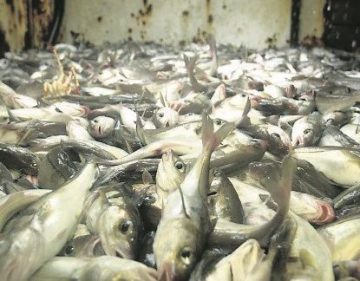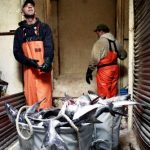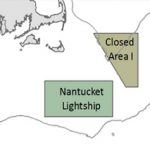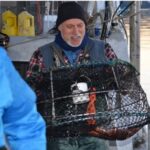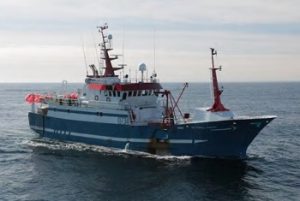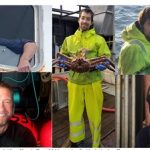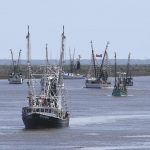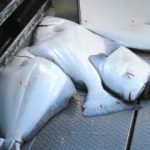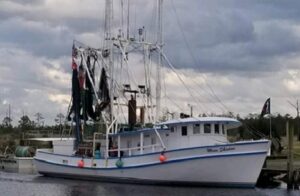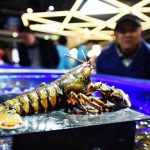Daily Archives: December 27, 2016
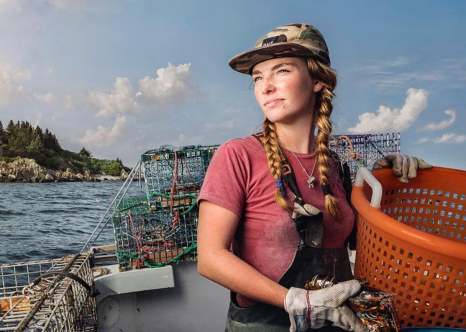
Chris Crisman’s “Women’s Work” Photo Series Shows Women Are Capable Of Any Profession
If there are certain jobs that come to mind when you think of “women’s work” or “men’s work,” Chris Crisman’s “Women’s Work” photo series will shatter those stereotypes to shreds. In order to prove your gender doesn’t have to limit your occupation, Crisman (whom we’ve reached out to for comment, which we will add if we hear back) photographed women in traditionally male jobs. The results are as empowering as they are visually compelling. The portraits are all of real women in roles that defy stereotypes, including a farmer, a brewer, taxidermist, and the operator of a rock hauler. See four images, and read the story here 16:58
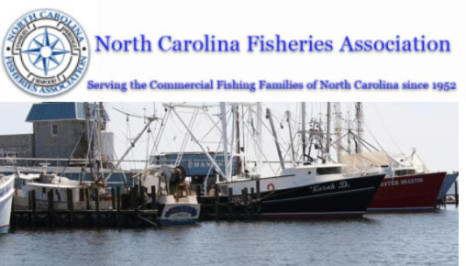
North Carolina Fisheries Association Weekly Update for December 26, 2016
Click here to read the Weekly Update, to read all the updates, Click here 15:14
Dead lobsters, crabs and herring are washing up along this Nova Scotia shore, and we don’t know why!
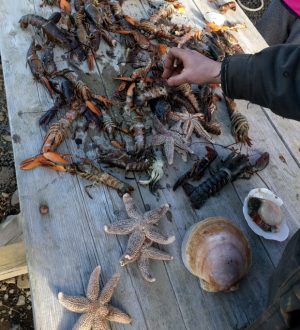 Halifax resident Eric Hewey was home in Digby, N.S., visiting for the holidays when he got a call from friends on Boxing Day summoning him to the beach below Savary Park in nearby Plympton. “They said we’ve got to come down and look at the beach.” On Tuesday Hewey described when he found when he arrived at the beach as sad: lots of dead herring — an ongoing and as yet unexplained problem — but also dead starfish, lobsters, bar clams, scallops and crabs. Ted Leighton is a retired veterinary pathologist who has been tracking the dead herring reports. He hadn’t been to the beach to see the most recent findings, but he’s seen Hewey’s pictures and noted it’s a place dead herring have been found before. More photos, read the rest here 13:09
Halifax resident Eric Hewey was home in Digby, N.S., visiting for the holidays when he got a call from friends on Boxing Day summoning him to the beach below Savary Park in nearby Plympton. “They said we’ve got to come down and look at the beach.” On Tuesday Hewey described when he found when he arrived at the beach as sad: lots of dead herring — an ongoing and as yet unexplained problem — but also dead starfish, lobsters, bar clams, scallops and crabs. Ted Leighton is a retired veterinary pathologist who has been tracking the dead herring reports. He hadn’t been to the beach to see the most recent findings, but he’s seen Hewey’s pictures and noted it’s a place dead herring have been found before. More photos, read the rest here 13:09
Concerns linger over Lake Superior’s historic herring fishery
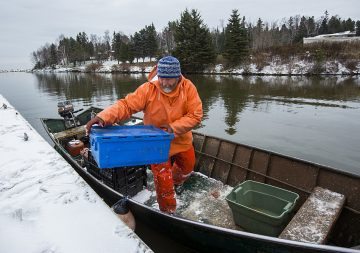 Minnesota fisheries managers are concerned about the long term health of the lake herring fishery in Lake Superior. Biologists worry not enough young herring are surviving to sustain the fishery, while at the same time demand for the fish has spiked. Minnesota’s 25 or so commercial fishermen who ply the waters off the North Shore have caught a lot fewer cisco in recent years. The herring, or cisco, fishery is always unpredictable, said Steve Dahl, a commercial fisherman who works out of the Knife River marina on the North Shore of Lake Superior. The last few falls have been tough for Dahl, whose nets have yielded fewer herring at a crucial time of year. This year was different, though. “November was really good, one of the better ones I’ve had,” he said. “Towards the end I sort of got overwhelmed, it was just too much.” Read the story here 11:21
Minnesota fisheries managers are concerned about the long term health of the lake herring fishery in Lake Superior. Biologists worry not enough young herring are surviving to sustain the fishery, while at the same time demand for the fish has spiked. Minnesota’s 25 or so commercial fishermen who ply the waters off the North Shore have caught a lot fewer cisco in recent years. The herring, or cisco, fishery is always unpredictable, said Steve Dahl, a commercial fisherman who works out of the Knife River marina on the North Shore of Lake Superior. The last few falls have been tough for Dahl, whose nets have yielded fewer herring at a crucial time of year. This year was different, though. “November was really good, one of the better ones I’ve had,” he said. “Towards the end I sort of got overwhelmed, it was just too much.” Read the story here 11:21
Southeast halibut catch limit may drop in 2017
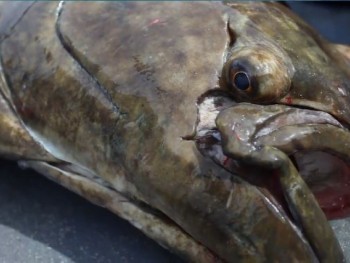 The International Pacific Halibut Commission is considering a cut of 870,000 pounds to Southeast Alaska’s 2017 halibut quota. The IPHC, the joint Canadian-American body that sets annual halibut harvests, concluded its interim meeting Nov. 30 in Seattle. The IPHC will set the 2017 quota at its 93rd annual meeting from Jan. 23 to Jan. 27 in Victoria, B.C. During the interim meeting, IPHC staff recommended that the entire North Pacific halibut catch be reduced from 29.89 million pounds to 26.12 million pounds. Most of the reduction would fall in the eastern portion of the Gulf of Alaska and in Pacific Canada. Read the story here 09:50
The International Pacific Halibut Commission is considering a cut of 870,000 pounds to Southeast Alaska’s 2017 halibut quota. The IPHC, the joint Canadian-American body that sets annual halibut harvests, concluded its interim meeting Nov. 30 in Seattle. The IPHC will set the 2017 quota at its 93rd annual meeting from Jan. 23 to Jan. 27 in Victoria, B.C. During the interim meeting, IPHC staff recommended that the entire North Pacific halibut catch be reduced from 29.89 million pounds to 26.12 million pounds. Most of the reduction would fall in the eastern portion of the Gulf of Alaska and in Pacific Canada. Read the story here 09:50
Invasive Asian carp less than 50 miles from Lake Michigan
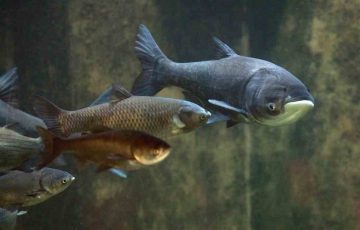 The news is mixed as Great Lake states and the federal government continue to devote money and brainpower to stopping a potential Great Lakes ecological disaster — invasive Asian carp species making their way from the Mississippi River into Lake Michigan. First the good news: The leading edge of the mass of bighead and silver carp hasn’t made much progress lately up the Mississippi and connected rivers toward Lake Michigan. Now the bad news: The younger fish — juveniles — are moving closer, the evidence shows. And they can do more damage. “The bottom line is that the juvenile front is advancing, and made a big jump last year,” said Joel Brammeier, president and CEO of the nonprofit Alliance for the Great Lakes. “And we still don’t have a permanent solution in place that’s going to solve this problem.” Read the story here 08:59
The news is mixed as Great Lake states and the federal government continue to devote money and brainpower to stopping a potential Great Lakes ecological disaster — invasive Asian carp species making their way from the Mississippi River into Lake Michigan. First the good news: The leading edge of the mass of bighead and silver carp hasn’t made much progress lately up the Mississippi and connected rivers toward Lake Michigan. Now the bad news: The younger fish — juveniles — are moving closer, the evidence shows. And they can do more damage. “The bottom line is that the juvenile front is advancing, and made a big jump last year,” said Joel Brammeier, president and CEO of the nonprofit Alliance for the Great Lakes. “And we still don’t have a permanent solution in place that’s going to solve this problem.” Read the story here 08:59
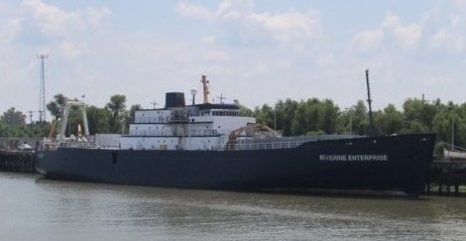
Floating factory vessel to process Invasive Asian Carp in Tennessee
Leaping from rivers and lakes like aquatic projectiles and ravaging the food base of native fish, Asian carp are loathed by outdoors enthusiasts and state wildlife officials alike for being not just a nuisance, but a threat to boating and fishing industries worth $2.9 billion and $2.1 billion, respectively, in Tennessee. Enter Joe Gillas. He sees the invasive fish as an opportunity. Gillas’ company, Riverine Fisheries International, plans to moor a factory fishing vessel at the Port of Cates Landing, located on the Mississippi River near Tiptonville, Tennessee, about 100 miles north of Memphis. The nearly 350-foot-long boat would process Asian carp caught in the Mississippi and other rivers and lakes into food products to be exported to some 20 countries, including China and Russia. “I think there’s a good business model here,” said Gillas, 53, who was born and raised in Alaska and has fished all over the world. “I think we can do something good and make money at the same time.” Read the story here 08:35
South Shore charter fishermen oppose new federal Dusky shark regulations
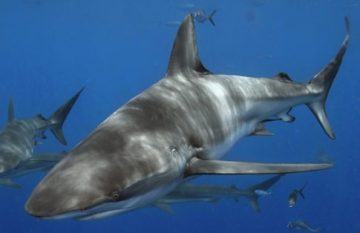 The National Marine Fisheries Service, a federal agency that regulates fishing in U.S. waters, is proposing new rules to protect a vulnerable shark species off the East Coast. Some charter boat captains who fish off the South Shore, however, see a problem with that. They argue that the shark in question – the dusky shark – does not even exist in much of their New England fishing grounds. “There are no duskies north of Cape Cod. None, zero,” Capt. Mike Pierdinock, who sits on the board of the Marshfield-based Stellwagen Bank Charter Boat Association, said last week. His charter boat, “Perseverance,” fishes out of New Bedford. “It’s ridiculous,” he said. “It smells of someone sitting at a desk and not looking at the realities of how things really are.” The National Marine Fishery Service’s proposed regulations are a response to a lawsuit by the environmental advocacy group Oceana. Read the rest of the story here 07:56
The National Marine Fisheries Service, a federal agency that regulates fishing in U.S. waters, is proposing new rules to protect a vulnerable shark species off the East Coast. Some charter boat captains who fish off the South Shore, however, see a problem with that. They argue that the shark in question – the dusky shark – does not even exist in much of their New England fishing grounds. “There are no duskies north of Cape Cod. None, zero,” Capt. Mike Pierdinock, who sits on the board of the Marshfield-based Stellwagen Bank Charter Boat Association, said last week. His charter boat, “Perseverance,” fishes out of New Bedford. “It’s ridiculous,” he said. “It smells of someone sitting at a desk and not looking at the realities of how things really are.” The National Marine Fishery Service’s proposed regulations are a response to a lawsuit by the environmental advocacy group Oceana. Read the rest of the story here 07:56






